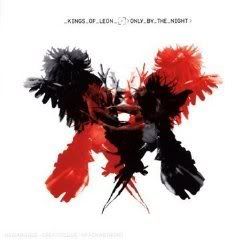DOUG STANHOPE + Henry Phillips
6th March 2012
Albert Halls, Bolton
Doug Stanhope has been rightly resistant to playing too much in Britain. Britain treats comedy differently than the US. Britain intellectualises and demands more than mere clownishness and dick jokes. Her critics sting and barb and carp about stagecraft and insight and conceptual rigour, often without irony at their own situation. Comedy takes place as much in theatres and arenas with strict seating, where social rules about getting hammered kick in that bit harder.
Stanhope is fighting against that. He wants you sneak in your own booze: too late for this show, but if we take to Twitter we can aid his passage through the UK by generating some looser audiences. He also resists a narrative framework for his show, firing a shot across the bows of comedians who doggedly stick to a thematic concept, leaving them powerless when the news demands a comedic response and they're glued to their prepared act about being an imaginary ghost dog. Stanhope revels in playing the guttersnipe, bringing along an opening act that neatly fits the anti-concept concept.
Henry Phillips exudes an easy, erudite charm that neatly veneers a couple of decades of road-weariness. He's funny too: a musical comedian keen to the vagaries and ridiculousness of musical performers, finding joy in a hurricane of hubris. It's a craftsman's performance. The obvious 'jokes' hit home and the song structures are convincing as pastiches, but it's the subtler gestures, such as the facial expressions and altered voice to mock the mode of the 'sincere rock performer' that stay in the mind. He playfully mocks Britain to his friend, the headline act, watching in the wings.
Relatively sober and recently off the plane, Stanhope seems less animated than his years of fiery recordings would have him be. Quick to self-criticise though he is, Stanhope works almost as well when forced into roles he capably plays but never sells himself as: the raconteur, the veteran of clownish showmanship, the contrary armchair politician. Some audience members seem ruffled when Stanhope goes to bat for Republican/libertarian weirdo Ron Paul, but it's all part of the shtick: I am not your Bill Hicks, you cannot easily box me.
The show finale seemed to ruffle more (online, I checked, take my word for it) feathers than any specific political endorsement could. Easy to read as 'flag-waving for the USA' if you ignore the bit where he says 'ignore the whole government, bombs, flag-waving, foreign policy, crazy stuff' and focus on where he says 'AMERICA IS GREAT'. And he's right. Britain is still snooty about the USA. It's a great bit of comedic sleight-of-hand; he appeals to everybody's baser desire to be somewhere warmer, freer, easier, sexier in a way that skilfully insults how Britain culturally romanticises ugliness, stale morality, coldness, and visual austerity as some kind of act of ascetic brilliance. It works because in this bit, as he dreams about cocktails on Floridian sand at sun-up, he's mentally there and we've not taken that journey with him. We're in the stuffy British theatre and he's in the dunes and he is the one laughing at us.
XIU XIU + Trumpets of Death
13th March 2012
Ruby Lounge, Manchester
Running into a friend at the bar, he asks what I think of Trumpets of Death. 'A bit passive-aggressive', I say. This was an imperceptive, first-glance read. The Leeds trio variously recall Windy & Carl, The Telescopes, and late-period Talk Talk in their swooping, elegant set. At worst you could accuse them of lacking identity (and indeed shunning it altogether), but at best they're immersive and hypnotic, working up a cerebral lather with mechanical rhythm and trance-inducing saxophone runs.
There are two Xiu Xius. Alike in dignity, one follows in the mope-rock pantheon of The Smiths, Joy Division, and The Cure. The other owes more to a crossroads between Eastern modes and modern composition, and as such can be easily characterised as 'difficult music'. When Xiu Xiu begin with an abrasive number with bowed electric bass, nerve-jangling percussion, and abstract guitar scribbles, an audience braces itself and checks for the exits.
Three songs later, Jamie Stewart (singer, effectively he IS Xiu Xiu) is politely asking permission to perform a New Order cover that ushers in a full hour of the accessible side of Xiu Xiu to everybody's secret relief. New single 'Hi' is among highlights: an impressive 3-minute stab containing the coiled-up energy and pop nouse of younger bands and their initial efforts. Stewart still wants this.
A curious cove of a performer, Stewart calmly sips tea between songs to preserve his hesitant yelp of a voice, largely refuses audience engagement, and there is no encore. What really surprises to this newcomer to the Xiu Xiu live experience is that the band on record, with its array of ethnic instruments and songs led by autoharp, is reducible to the classic four-piece guitar-band line up without trading any of their signature fragility or tonal idiosyncrasy. This allows for a more direct and familiar experience, comparable to many an outsider band that have insisted upon faithful live recreation of their multi-instrumental experience in a way that induces deep tedium (naming no names).
Historically, for me at least, seeing a band live often marks the end of a spurt of a period of time spent listening to their work and sees the band steadily acclimatise into a kind of rota alongside previous likes and loves. The days since Xiu Xiu's performance have been the reverse: a binge across the nooks and crannies of their output, finding previously unheard collaborations and split albums of consistently high merit. A genuine treat.





